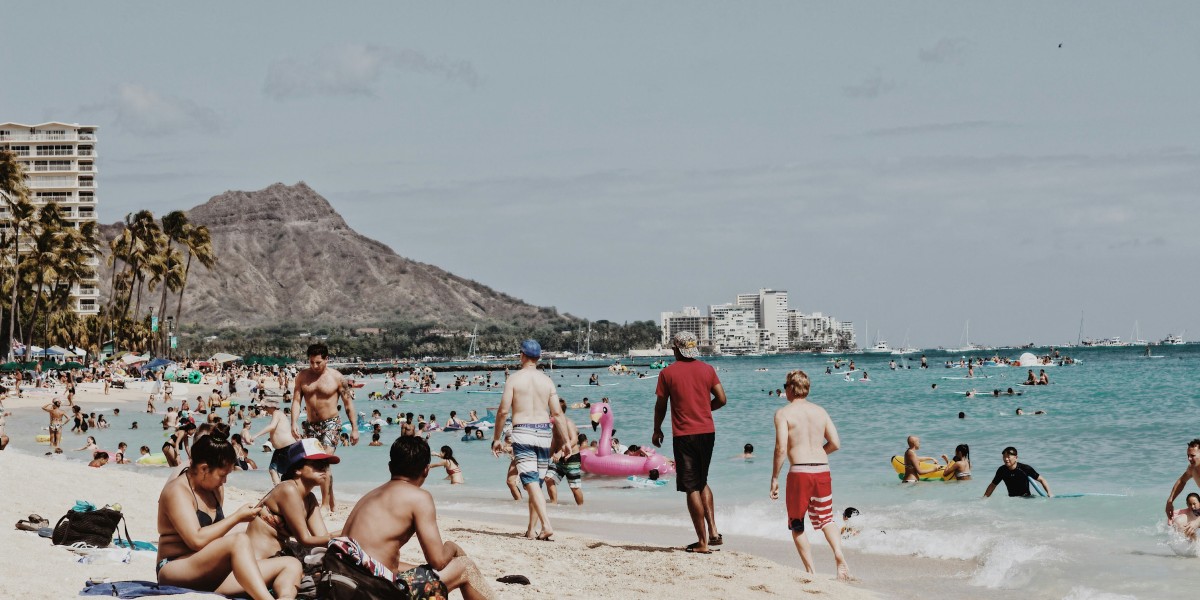
Tourist taxes, often referred to as sustainable tourism levies or city taxes in Spain, are an increasingly common measure for destinations managing high visitor numbers. This small, per-night fee is typically added to accommodation costs and is designed to help mitigate the impacts of tourism on local areas. Revenue generated from these charges is reinvested into the community, funding the maintenance of public services and infrastructure, as well as projects that protect cultural heritage and the local environment. In this way, the visitor economy contributes directly to the preservation and sustainability of the destination itself.
- Understanding the tourist tax in Spain
- Which regions in Spain will have a tourist tax in 2025?
- Barcelona tourist tax set to double by 2029
- Majorca tourist tax and rates for the Balearic Islands
- How is the hotel and holiday rental tax paid in Spain?
- Who is exempt from paying the Spanish tourist tax?
- What happens if you don’t pay the tourist tax?
- Future tourist taxes: which cities and regions are next?
Understanding the tourist tax in Spain
Travellers planning a visit to Spain will find that there is no single, nationwide tourist tax. Instead, these levies are implemented at a regional level by certain autonomous communities. Often called a "sustainable tourism tax" or an "ecotax", the charge is designed to generate funds for sustainable tourism initiatives, helping to maintain local infrastructure and services affected by high visitor numbers. The amount charged is calculated on a per-person, per-night basis, with the final cost varying depending on the specific region and the category of the accommodation, such as a hotel or holiday rental.
Which regions in Spain will have a tourist tax in 2025?
As of 2025, Spain’s tourist tax system remains a regional matter rather than a national policy, but the landscape is evolving. For years, only two autonomous communities had a widespread tourist tax:
- Catalonia: the region introduced its tax in 2012, which applies across the region and includes a significant additional surcharge for the city of Barcelona.
- The Balearic Islands: since 2016, the islands of Majorca, Menorca, Ibiza, and Formentera have charged a sustainable tourism tax, also known as an "ecotasa".

Barcelona tourist tax set to double by 2029
In a significant move to manage its visitor economy, Barcelona City Council has approved a plan to double its municipal tourist tax surcharge, setting a target rate of €8 per night by 2029. The decision lays out a gradual, four-year increase of €1 annually, starting with a rise to €5 in 2026.
It is important to understand that the final charge for visitors to Barcelona is made up of two distinct parts:
- The regional tourist tax (IEET) applies to all tourist accommodation throughout the Catalonia region.
- The city-specific surcharge, an additional levy applied only within Barcelona's municipal boundaries.
The cost of the regional tax varies depending on the type of accommodation. While this tax applies everywhere in Catalonia, only those staying in Barcelona pay the extra municipal surcharge. This dual system means that by 2029, a tourist staying in a five-star hotel in the city could face a combined charge of up to €15 per night. The incremental increases are designed to ensure that the growing number of visitors contributes more substantially to the city's resources, helping to fund essential services and balance the demands of tourism

Majorca tourist tax and rates for the Balearic Islands
The Balearic Islands, which include Majorca, Menorca, Ibiza, and Formentera, implement a "Sustainable Tourism Tax," widely known as the Ecotasa. This levy applies to all stays in regulated tourist accommodation across the archipelago, and the revenue is used to fund projects that protect the islands' environmental and cultural heritage.
The amount charged is calculated per person, per night, and varies according to the type of accommodation. The base rates are as follows:
- €4 for stays in 5-star and luxury hotels, as well as licensed holiday rental properties.
- €3 for 4-star and 4-star superior hotels.
- €2 for 1, 2, and 3-star hotels and apartments.
- €2 for cruise ship passengers.
It is important to note that a 10% VAT is added to these base rates, which is included in the final amount paid by the tourist. There are several significant discounts and exemptions. Children under the age of 16 are not required to pay the tax. A 50% discount is applied to the rate during the low season, which runs from 1st November to 30th April. Furthermore, visitors staying longer than eight days at the same accommodation receive a 75% reduction on the tax from their ninth day onwards.
How is the hotel and holiday rental tax paid in Spain?
The process for paying the tourist tax in the regions where it applies is straightforward and handled directly by your accommodation provider. Whether you are staying in a hotel, a campsite, or a holiday rental, the establishment is legally responsible for collecting the fee.
Payment is typically made at the end of your stay when settling the final bill, although some establishments may request it upon check-in. This applies to all forms of regulated tourist accommodation, including properties booked through online platforms such as Airbnb, where the host manages the collection. The charge is listed as a separate item on your final invoice and is not usually included in the headline price seen when booking online. These payment obligations are part of the wider framework of Spanish tourist apartment regulations, which ensure that all operators comply with local laws.

Who is exempt from paying the Spanish tourist tax?
While the tourist tax is mandatory in the regions where it applies, there are specific exemptions in place. The rules vary slightly between Catalonia and the Balearic Islands, but they generally cater to minors and individuals travelling for specific, non-leisure reasons.
The most common exemption across both regions relates to age. In Catalonia, children aged 16 and under do not have to pay the tax. The Balearic Islands apply a similar rule, exempting all travellers under the age of 16.
Beyond this, other key exemptions include:
- Stays for medical reasons: both regions provide exemptions for individuals (and often their companions) who are travelling to receive treatment at a public or accredited health facility.
- Subsidised social programmes: in Catalonia, stays that are part of a subsidised social programme organised by a public administration are also exempt.
- Force majeure: the regulations in the Balearic Islands explicitly mention exemptions for stays that are the result of force majeure, such as a natural disaster or other extraordinary event.
What happens if you don’t pay the tourist tax?
The legal responsibility for collecting this fee falls directly on the accommodation provider, who faces substantial penalties for failing to comply with the regulations. For this reason, tourists will find that payment is a standard and non-negotiable part of the check-in or check-out process. This makes it practically impossible for a visitor to avoid paying the tax.
The collection process is one of several obligations that accommodation providers must manage, alongside adhering to the latest requirements of systems like Spain's new tourist registration. These measures are part of a wider landscape of government oversight affecting tourism and foreign investment, which sometimes includes proposals such as a bill to double property prices for non-EU buyers.

Future tourist taxes: which cities and regions are next?
Several other cities and regions are set to introduce their own levies in 2025 and beyond. Leading this new wave is Santiago de Compostela. The Galician city will implement its tourist tax from September 2025, with visitors being charged between €1 and €2.50 per night for a maximum of five days. Nearby, the city of Vigo is also preparing a similar tax for hotels, tourist flats, and cruise passengers.
In Castilla-La Mancha, the historic city of Toledo is also preparing a unique tax of around €1.50. Its proposal specifically targets day-trippers who arrive on tour buses but do not stay overnight in the city’s hotels, aiming to ensure these visitors also contribute to the city's upkeep.
The debate is advancing elsewhere, too. In Andalusia, major cities like Málaga and Seville are actively considering proposals to introduce a tourist tax. Further north, the regional governments of the Basque Country and Asturias are also formally exploring the implementation of their own regional tourist levies, indicating a significant nationwide shift in tourism management policy.
---------------------
Stay in the know about visiting and living in Spain—get our weekly newsletter for the latest travel, legal, and lifestyle news.
